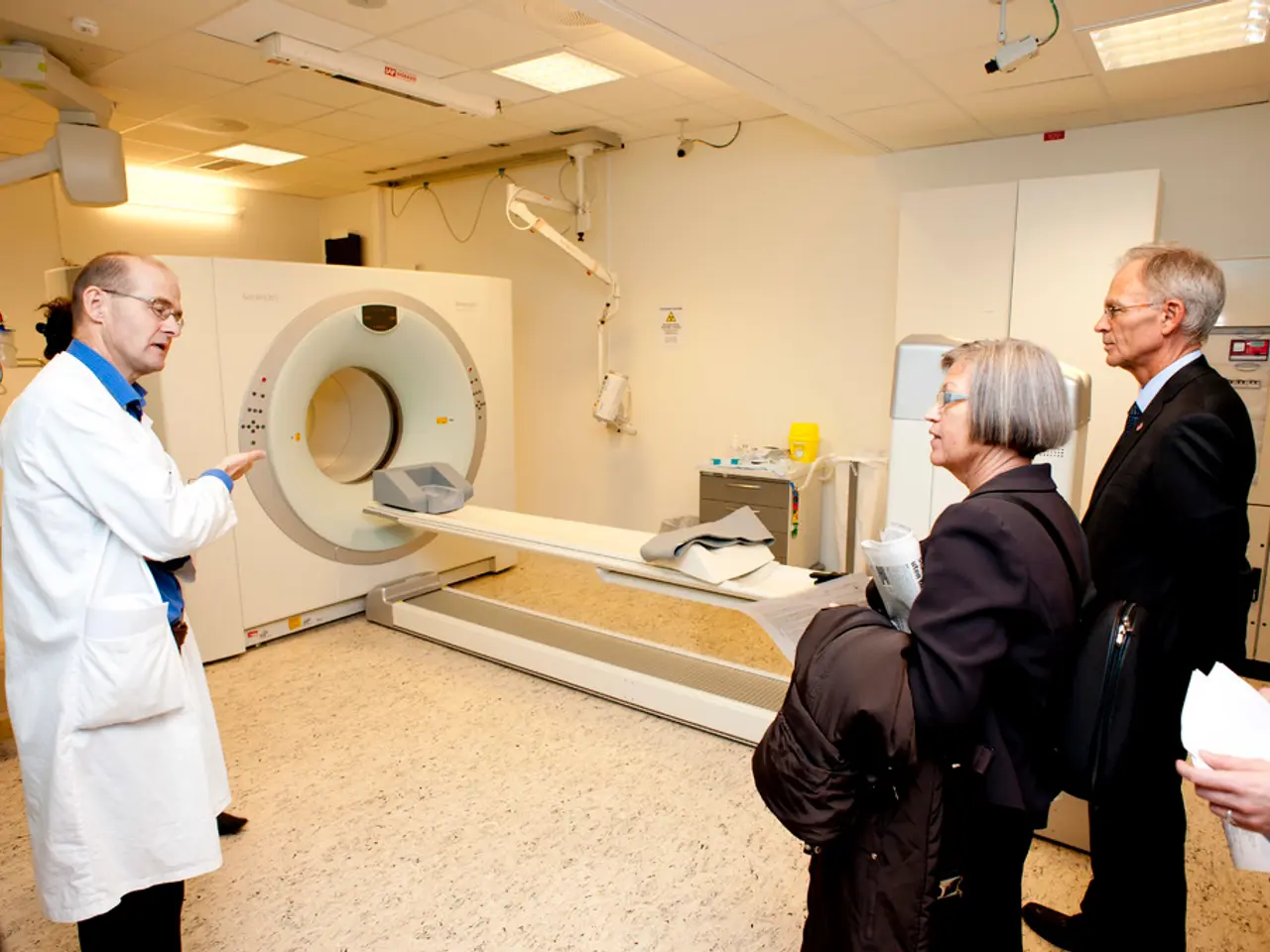Improvement indicators for pneumonia: Recognizing the signs and additional information
Pneumonia, an infection that inflames the air sacs in one or both lungs, can be a serious health concern, particularly for certain groups of people. This article aims to provide a clear and concise overview of pneumonia recovery, its signs, and precautions to take during the healing process.
Recovery Time and Symptoms
Recovery from pneumonia typically takes between 1 to 3 weeks for mild cases, with many individuals beginning to feel better within a week. However, full recovery can take up to 6 weeks or more, especially for severe cases or those with complications. Symptoms such as fatigue, coughing, and breathing difficulties may persist for several weeks, and some individuals, particularly older adults or those with other health conditions, may take months to feel fully normal again.
Common signs of improvement during pneumonia recovery include a reduction in fever, decrease in chest pain and mucus production, improvement in cough and breathing difficulties, increased energy levels, and the ability to resume normal daily activities without excessive shortness of breath or discomfort.
Factors Affecting Recovery
The severity of pneumonia can depend on the cause, a person's overall health status, and their age. People with compromised immune systems, young children, older adults, and those with underlying conditions such as diabetes may be more likely to have complications from pneumonia.
Precautions and Preventive Measures
To improve recovery, it is crucial to follow the doctor's treatment plan, take all medication as prescribed, avoid smoking and secondhand smoke, get plenty of sleep, drink lots of fluids, take steamy showers, and do light exercise following a doctor's guidance.
During recovery, it is essential to avoid drinking alcohol and using other substances. To prevent spreading the infection to others, regular hand-washing, disposing of tissues immediately after use, limiting contact with friends and family, covering the nose and mouth while coughing or sneezing, and avoiding alcohol and other substances are recommended.
Complications and Worsening Symptoms
Complications of pneumonia can include sepsis, respiratory failure, acute respiratory distress syndrome, and lung abscesses. If symptoms worsen or do not improve as expected, further medical evaluation is necessary to avoid complications. In such cases, it is advisable to consult a healthcare professional for more information about pneumonia recovery on an individual basis.
In summary, while initial symptom improvement can be seen within 1 to 2 weeks, complete recovery from pneumonia often takes several weeks to months depending on severity and individual factors. By following the recommended precautions and treatment plan, individuals can improve their recovery and prevent relapse.
- Pneumonia, a lung infection that inflames the air sacs, can be a significant health concern, especially for individuals with weakened immune systems, children, the elderly, and those with pre-existing conditions like diabetes.
- Recovery from pneumonia usually takes between 1 to 3 weeks for mild cases, and up to 6 weeks or more for severe cases with complications.
- Recovery signs include a decreasing fever, reduced chest pain and mucus production, improved cough and breathing, increased energy levels, and resumption of normal activities.
- Science and medical research play a crucial role in predicting the progression of chronic diseases like pneumonia, obesity, asthma, COPD, and neurological disorders.
- It's important to follow the doctor's treatment plan, take medication as prescribed, rest, stay hydrated, and do light exercise to aid in recovery.
- Avoiding smoking, secondhand smoke, alcohol, and other substances can also support recovery, as can practicing good hygiene through regular hand-washing and disposing of tissues immediately.
- To prevent the spread of infection, limit contact with others, cover the mouth and nose while coughing or sneezing, and maintain clean environments in the workplace and at home as part of a comprehensive workplace-wellness and health-and-wellness program.
- Medical conditions like pneumonia, cancer, respiratory conditions, digestive health issues, eye-health problems, hearing difficulties, and autoimmune disorders require ongoing monitoring and management within the framework of one's personal health care plan.
- Fitness and exercise, along with a balanced diet rich in nutrition, play essential roles in maintaining cardiovascular health, managing weight, and promoting overall well-being.
- Mental health, sexual health, and men's health are also important aspects of holistic health care, with therapies and treatments available to address common concerns like anxiety, depression, and sexual dysfunction.
- Women's health encompasses key issues like reproductive health, pregnancy, and menopause, requiring professional guidance for optimal care.
- Skin care is another critical aspect of total health, with various products, treatments, and preventive measures available to maintain healthy skin and manage skin conditions.
- Medicare provides coverage for many medical treatments and services, including those related to chronic diseases and health maintenance.
- CBD, a compound derived from the cannabis plant, is being studied for its potential therapeutic uses in treating various medical conditions such as epilepsy, anxiety, and chronic pain.
- Managing weight and maintaining a healthy age is crucial for reducing the risk of obesity, diabetes, cardiovascular disease, and certain forms of cancer.
- Parenting requires ongoing knowledge and awareness of child development, health and safety concerns, and teaching valuable life skills for a child's successful growth and well-being.
- Aging brings about changes in various aspects of health, including eye, hearing, skin, and cognitive function, with strategies for keeping each aspect strong and healthy becoming increasingly essential.




